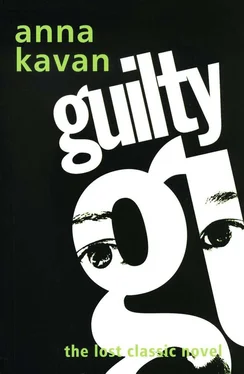In these circumstances, I was glad to start studying under the clergyman of our parish. The rectory being some distance away, I had my lunch there and only came home in the late afternoon after I’d finished work. This odd little wiry man, with a fluff of saintly white hair, was something of an eccentric, an authority on the Roman occupation of our district, of which many traces remained, some of them already excavated under his supervision. He taught me Latin with enthusiasm, so that I soon became very good for a boy of my age and could even converse with him in this language at lunchtime. In our other subjects he took no interest, frequently abandoning them in favour of inspecting the site of some ancient villa or encampment, where I would take a hand with the digging or search the undergrowth for a rare species of edible snail, said to be descended from those the Roman legionaries had imported.
I was grateful to the rector for not talking down to me and treating me like a grown-up person — which probably made me rather precocious but saved me from wasting several years in overprolonged adolescence, like most of my contemporaries. He also gave me the run of his library, and I am indebted to him for my love of reading — one of the few pleasures not likely to be taken away from one in this life — though probably I wouldn’t have become such an ardent reader all at once if it hadn’t been winter when I was forced to spend the long evenings indoors, or if my mother had been more companionable.
Seeing me bent over the turning pages for hours on end, she would emerge from her meditations to ask what I found so absorbing. I’d have gladly given a detailed account of each book in turn, but she wasn’t really interested, and, asking only from ulterior motives, her attention soon wandered. I think she half knew I used the books to replace the affection she no longer gave me and that this somehow made her dislike them. In her determination to stop me reading she displayed more interest in me than she’d done for some time, so that I was almost glad to be scolded, thinking it meant a revival of our lost warmth. That winter happened to be particularly severe, and I couldn’t help feeling there must be some connection between the desolate frozen landscape outside and the coldness growing indoors. But though I tried to build up an interior glow as I built up the fires, an occasional scolding was insufficient fuel. She soon returned to her melancholy moods, when she seemed to want only to be left alone, and I had to resort to my books.
Our old trustful affection had already been left so far behind that I didn’t hesitate to deceive her by keeping them hidden, doing my reading in secret, in bed, by the light of a carefully shaded candle or, in the daytime, in a private retreat of my childhood, behind the blackish foliage of an old yew tree. This treehouse, built for me by my father years before, had, since I ceased to play there, fallen into decay and its very existence been almost forgotten, totally concealed as it was by dense growth, so that, wrapped in rugs and blankets, I could read here without fear of discovery while I was supposed to be skating or engaged in some other healthy sport — I’d been told it was ‘unmanly’ to be such a bookworm and that I ought to get out more in the open air.
But, as the days shortened and the weather grew worse, I could avail myself less and less of this refuge. Inevitably, my pernicious habit of reading in bed was discovered and led to a scene, my mother accusing me of ruining my health and eyesight and endangering our lives — sooner or later, I was bound to set the place on fire with my candle. I think she would have gone on to forbid me to read at all if Mr Spector, who happened to be there at the time, hadn’t interceded for me and persuaded her to adopt a more moderate attitude.
He’d been visiting us regularly ever since my father left, but as I was always at the rectory when he came, only returning when he would be on the point of departure, we’d done little so far but exchange greetings. Now, however, by openly siding with me he won my gratitude, and I admired his tactful handling of the whole affair, which actually left my mother in a better mood. He stayed late that day on purpose to talk to me, and I was flattered — almost dazzled, indeed — by his friendliness and understanding, so that much of my original feeling for him revived on the spot. Afterwards this interview seemed very important, marking an irrevocable step, and from then onwards our intimacy progressed rapidly.
He now made a point of coming to see us at weekends when I was at home and also of spending some time alone with me on each visit, realizing my need to let off steam and encouraging me to speak of whatever was on my mind. He thus acted as a sort of emotional safety valve, for I trusted him implicitly and told him everything without hesitation.
At this time I was mainly worried about not going to school. Being the only pupil of an eccentric rector wasn’t at all the same thing and seemed to single me out and make me undesirably conspicuous, so that I was not only conscious of my isolation but slightly ashamed of it. Now, to my great relief, I could tell him all this, in the triumphant knowledge that no sense of inferiority or loneliness could survive the fact that he — this powerful, wonderful, magnificent personage — was my friend.
The understanding between us even enabled me to speak of my mother. On one occasion I remember saying that, as she was unhappy herself, she didn’t want anyone else to be happy and stopped me reading because she knew it was what gave me most pleasure. And I remember, too, how oddly he looked at me then. It has since occurred to me that it was a somewhat strange observation in view of my age and an instance of the precociousness I have mentioned. Possibly he looked upon it as a sign of intelligence and therefore increased his interest in me; but this is only a guess, for he merely nodded wisely, saying that there was something in my remark but that I must always be patient and gentle with her, and with all women, as they didn’t have our resources. The last words, of course, puffed me up with pride, and I nodded back, sagely complacent, linking myself with him in a closed circle of superior masculine wisdom.
What I most appreciated about him was the impression he always gave of understanding everything and having everything under control, so that nothing disturbing could happen while he was there. He shared with his great black car the reassuring quality of infinite reliability, always arriving at the time arranged, no matter how bad the weather conditions, so that I began to believe them both immune from the tiresome impediments so frustrating to ordinary people.
Though he never took me out alone, I enjoyed driving with him more than anything else, particularly at this time of the year. There was a special thrill about being carried along by the powerful machine, so warm in this bitter weather that it really might have been an extension of its owner’s self and warmed with his blood. To be borne with such speed, warmth and comfort across the bleak icebound landscape gave me a godlike feeling of superiority to the everyday world, which was the basis of countless fantasies, taking their changing form from the ever-moving vista before my eyes. I didn’t resent my mother’s occupation of the front seat but actually preferred this arrangement, where I could remain alone at the back without fear of being interrupted in my daydream. I would become so lost in my imaginings that I was completely oblivious of my companions’ conversation, and even of their existence, sometimes brought back to earth with a start to find them laughing at my ‘wool-gathering’ and repeating some question or remark already made several times.
At the start, it rather surprised me that my mother, who had so little to say to me, always seemed cheerful and talkative on these outings. But I soon realized it was only another manifestation of Mr Spector’s singular powers of controlling and directing all situations according to his will and prohibiting all that might be embarrassing or alarming. So convinced was I that his presence formed a guarantee against unpleasantness that it was a considerable shock to find this wasn’t invariably the case.
Читать дальше












